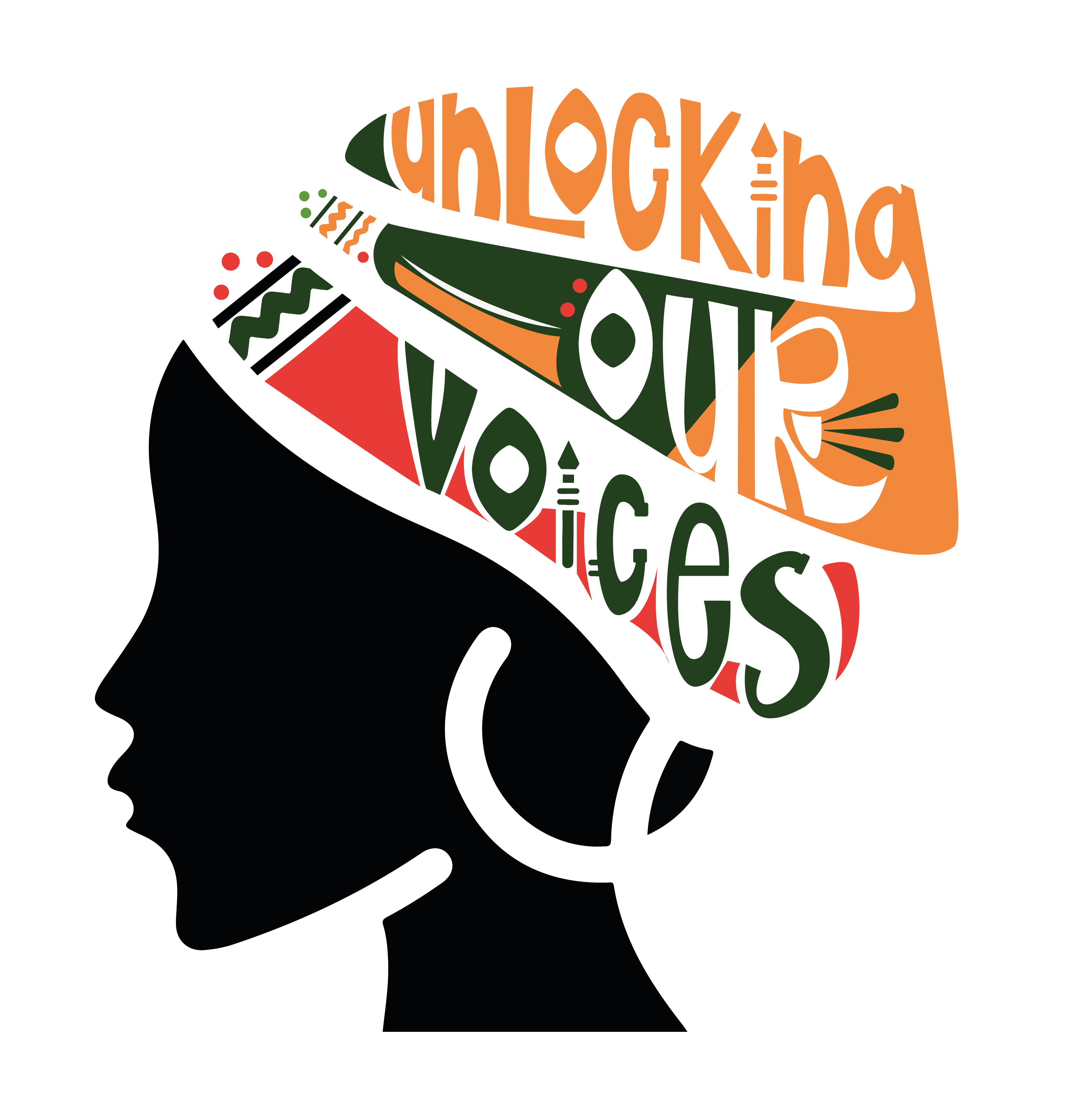I Went to Peru Looking for Afro-Peruvians, Not Machu Picchu
I Went to Peru Looking for Afro-Peruvians, Not Machu Picchu
by Greg Fuller, Founder of Unlocking Our Voices
There’s a whole part of Peru’s story most people never hear—and it’s time we talked about it
Peru is the kind of place that practically sells itself—towering Andes, ancient ruins, dense Amazon jungles, and llamas with attitude. It’s the stuff of travel blogs and influencer reels.
But when I touched down in Lima in November 2022, I wasn’t chasing Instagrammable views or trekking to Machu Picchu. I had one goal: to find Afro-Peruvians.
I wasn’t there as a researcher. I wasn’t writing a paper. I was following something more personal—curiosity, connection, and a deep pull to uncover stories from the African diaspora that often go untold. I wanted to know: Where were the Black Peruvians? What was their history? Why weren’t they part of the mainstream narrative?
What I discovered shook me—in ways I didn’t expect and still haven’t fully processed. And it reminded me that history isn’t always written down; it’s passed on, face to face.
The part of Afro-Peruvian history that didn’t make the textbooks
When people think of African roots in Peru, they usually start—and stop—with slavery. And yes, more than 100,000 enslaved Africans were brought to Peru during colonial rule to work the haciendas and mines. But the real story is a lot more layered… and a lot more overlooked.
Most people don’t know that African people didn’t just arrive as enslaved laborers. Some came as free men, part of the Spanish conquest alongside Francisco Pizarro in 1532. And long before Lima was a capital city with Spanish flair, African Moors had already left their architectural mark on its streets, if you know where to look.
But despite this deep-rooted presence, Afro-Peruvian history has been pushed to the sidelines. Erased from classrooms, textbooks, and public memory. For generations, Peru’s national identity has been shaped around its Andean and mestizo heritage, leaving Black Peruvians out of the narrative altogether.
Meeting the faces behind the history
When I landed in Peru, the country was simmering with political unrest. Protesters were out in the streets, voicing anger over the government and President Pedro Castillo. Honestly, I had to remind myself that this wasn’t my first time watching a nation grapple with chaos—I just hadn’t expected to do it while trying to meet Afro-Peruvians for the first time.
But even as the noise of protest echoed through Lima, I stayed focused. I wasn’t there for politics. I was there for people.
I had arranged meetings with an incredible group of individuals who, in their own ways, are preserving and amplifying Afro-Peruvian identity. Ana Lucia Mosquera, an activist and university professor, welcomed me with grace and clarity. Dr. Jorge Rafael Ramírez, Director of Social Projects at Ashanti Peru, spoke with passion about community empowerment. Then there was Richard Aguilar Saavedra, Director of the National Afro-Peruvian Museum—soft-spoken but rooted in pride. My tour guide, Omar Araya, brought history to life with every step we took.
What struck me most? Their calm confidence. None of them fit the narrow, Western expectation of what “Black” looks like. Their skin tones ranged, their features varied—but their connection to African ancestry was undeniable. Sometimes, it came in the way they spoke about their work. Other times, it was in the stories they carried from family, land, and memory.
And yet, the most surprising moment was still ahead of me.
A man who looked like a typical Peruvian professor—but with dreadlocks, light-skinned, academic—would go on to teach me more about Blackness, belonging, and identity than I ever expected.
The professor who didn’t look the part—but lived the truth
On my last day in Peru, I met someone who completely flipped my understanding of Black identity in the country.
Professor Jose Miguel Vidal Magariño didn’t “look” Afro-Peruvian—not by the stereotypes we’re taught to recognize, anyway. With his fair skin and European features, he could easily pass as a typical Peruvian academic. But within minutes of meeting him, it was clear: Jose knew exactly who he was.
“I’m Afro-Mestizo,” he told me with quiet certainty. A mix of European, Indigenous, and African roots. At first, I thought he was joking. But then he started tracing his family lineage, recounting stories of his ancestors, and speaking with deep conviction about Afro-Peruvian erasure.
As Jose explained, Peru’s institutions—especially since the 1930s—have painted the nation as Andean and mestizo, quietly pushing Afro-Peruvians out of its cultural frame.
I sat there, stunned—not because of his appearance, but because of how deeply he felt about the culture.
Jose is a Rastafarian. He writes, teaches, and advocates for Afro-Peruvian recognition. He lives his identity from the inside out, not the outside in. In that moment, I realized that Blackness in Peru doesn’t come in one look. It lives in the heart, the memory, the fight to be seen.
Before we parted ways, I gave him my only copy of The Philosophy and Opinions of Marcus Garvey. It just felt right.
Afro-Peruvians today are still fighting to be seen
Despite their centuries-long presence in Peru, Afro-Peruvians today are still invisible—both in public life and in how their own history is remembered. Black communities in Peru are often pushed to the margins, both geographically and socially. Most live along the coast in regions like Piura, Ica, Lima, Callao, and La Libertad; many in areas with limited access to healthcare, education, or political representation.
Officially, Afro-Peruvians make up just 3–4% of the country’s population, but some believe the number is much higher—possibly in the millions. And yet, their stories remain largely unrecorded. Representation in textbooks, government, and media is rare. The 2017 census was the first to include racial identity since 1940.
But the deeper loss runs beneath the surface. In places like Ingenio de Buenos Aires, a town in Piura, there are people who identified as Black, but didn’t connect that identity to Africa or slavery. Their stories began on the hacienda, as tenant farmers in the 19th century, not on a slave ship. That absence of ancestral memory isn’t coincidental. It’s the legacy of silence. As I have said over and over in my podcasts, when we are silent, no one can hear our struggles, our courage, our pride, and heritage. Silence keeps the world from knowing the stories of the black diaspora.
And still, despite that silence, there is pride. In Guayabo, the Cotito Cartagena family has held tight to their heritage, thriving in the restaurant business and carrying their African features and legacy with boldness. In El Carmen, the Mendoza Garcia family continues to celebrate their roots, beautifully connected to the African family tree.
Afro-Peruvian culture isn’t an echo of the past—it’s alive, adapting, and glowing like a gem forged under pressure. It may be unpolished by mainstream attention, but it shines in ways that are impossible to ignore.
Afro-Peruvians have always been stars, even without the spotlight
In spite of being sidelined, Afro-Peruvians have helped shape the very soul of Peru.
In music, legends like Susana Baca, Eva Ayllón, Victoria Santa Cruz, and Nicomedes Santa Cruz kept Afro-Peruvian rhythms alive. In sports, players like Julio Meléndez, Teófilo Cubillas, and Yordy Reyna carried the nation’s pride onto the international stage.
They didn’t wait for recognition. They just kept shining. That’s the thing about stars—and gems. They don’t need spotlights to glow.
Why I’ll be back—and why Unlocking Our Voices exists
This trip wasn’t just a getaway. It was a reckoning. I arrived with questions and left with purpose.
It’s exactly why I started Unlocking Our Voices podcast. Because when these stories stay hidden, we don’t just lose history—we lose possibility.
Through our podcast and future offerings, we’re reclaiming space for the African diaspora. Telling the stories that deserve to be heard. Amplifying the voices that have been silenced for far too long.
If this resonated with you, come join us. Tune into the podcast and share your thoughts with us on social media. You can also follow along on Instagram and YouTube, where we continue the conversation with behind-the-scenes clips, powerful visuals, and the faces behind the voices.
There’s so much more to discover—and we’d love to have you with us.
Why the world needs to listen to Unlocking Our Voices



Mary Tere